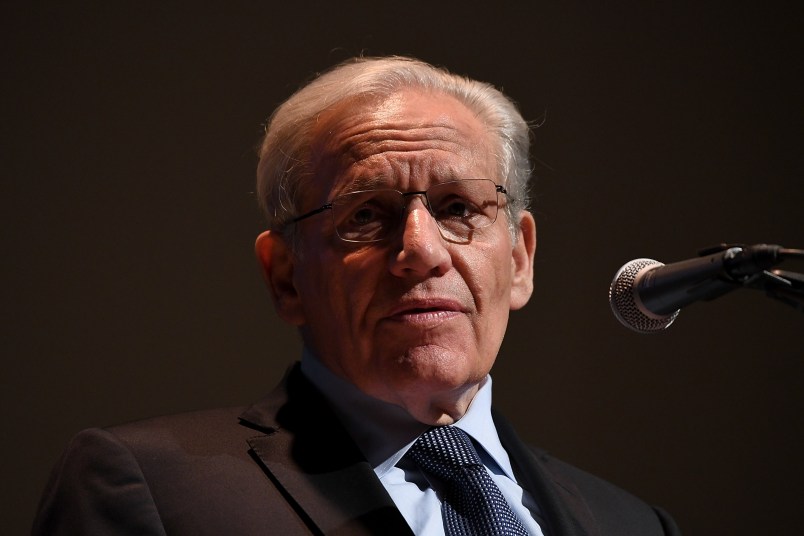Famed investigative journalist Bob Woodward responded to criticism he is facing for taking months into the COVID-19 pandemic to reveal how President Trump privately acknowledged that it was “deadly stuff” early this year — which starkly contrasted his public downplaying of the novel coronavirus — during an interview with the Associated Press on Wednesday.
According to multiple reports on Wednesday, Woodward wrote in his forthcoming book titled “Rage” that Trump privately expressed fear over COVID-19 after being warned by national security officials in late January that COVID-19 would be the worst pandemic in a century.
However, the President would go on to spend the following weeks downplaying the threat of COVID-19 as cases began to spread throughout the country, which included telling reporters during a White House briefing in mid-March that the novel coronavirus is “going to disappear.”
Hours after reports on Woodward’s book were released, Trump admitted that he purposefully downplayed the COVID-19 pandemic in its early stages, despite privately acknowledging it was “deadly stuff,” because he is “a cheerleader for this country.”
Woodward, who spoke with Trump 18 times from December to July for his book, faced backlash on social media for not reporting on the President’s private COVID-19 concerns sooner as the country records more than 190,000 fatalities from the infectious disease.
In a phone interview with the AP on Wednesday, Woodward said that he needed time to ensure the accuracy of the President’s private comments from February.
“He tells me this, and I’m thinking, ‘Wow, that’s interesting, but is it true?’ Trump says things that don’t check out, right?” Woodward told the AP.
Woodward referenced a famous phrase from the Watergate era — which Woodward’s reporting for the Washington Post eventually led to then-President Richard Nixon’s decision to resign — in describing his mission for his forthcoming book.
“What did he know and when did he know it?” Woodward told the AP.
According to the AP, Woodward claimed that Trump would call him “out of the blue” in early February to “unburden himself” about the novel coronavirus, which then had few cases in the U.S.
Woodward told the AP that only in May that he felt assured in reporting Trump’s comments as the country experienced surges of COVID-19 cases nationwide.
“If I had done the story at that time about what he knew in February, that’s not telling us anything we didn’t know,” Woodward told the AP.
Woodward then viewed reporting on the contradiction between Trump’s private and public comments on COVID-19 as a political matter, which prompted his decision to publish his book before the November presidential election.
“That was the demarcation line for me,” Woodward told the AP. “Had I decided that my book was coming out on Christmas, the end of this year, that would have been unthinkable.”
Woodward also told the AP that he decided against sharing Trump’s private remarks in February with a fellow Post reporter to report on due to having developed “some pretty important sources” on his own.
“Could I have brought others in? Could they have done things I couldn’t do?” Woodward told the AP. “I was on the trail, and I was (still) on the trail when it (the virus) exploded.”



